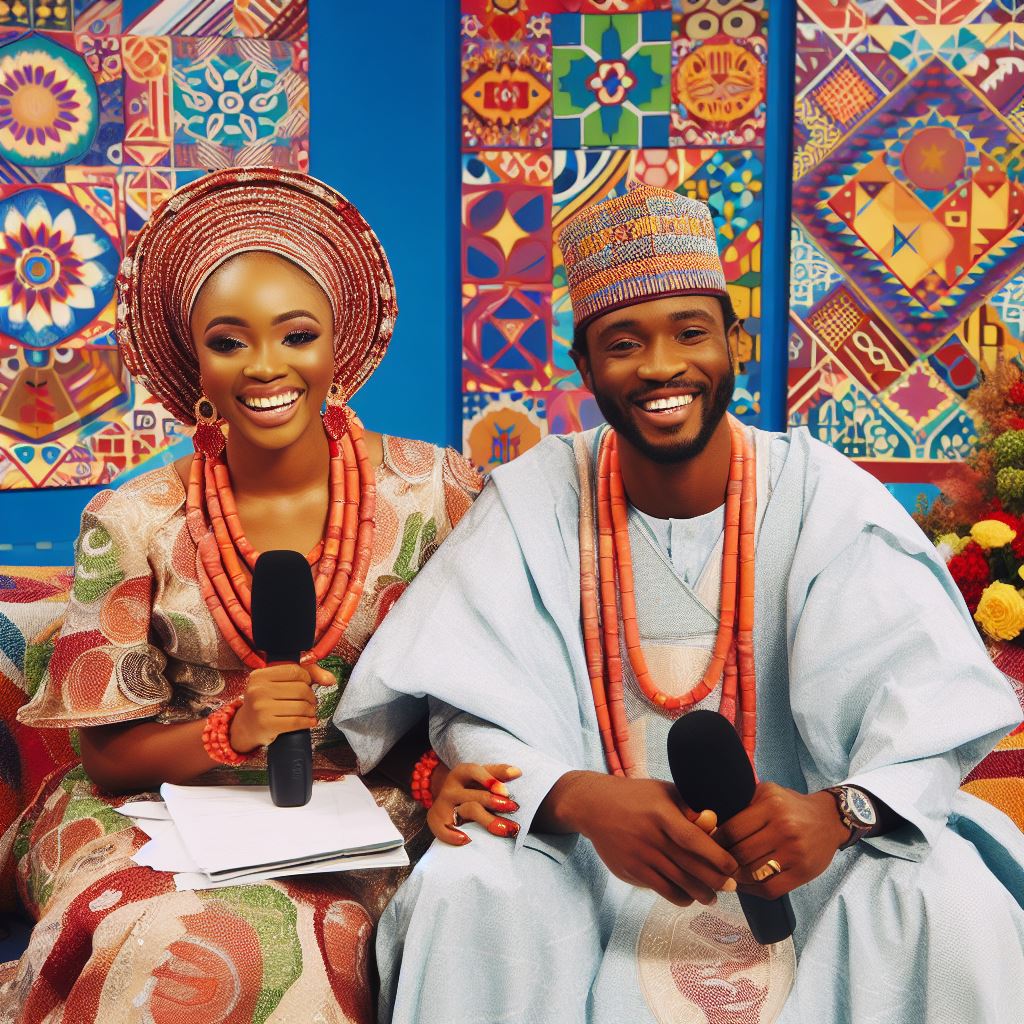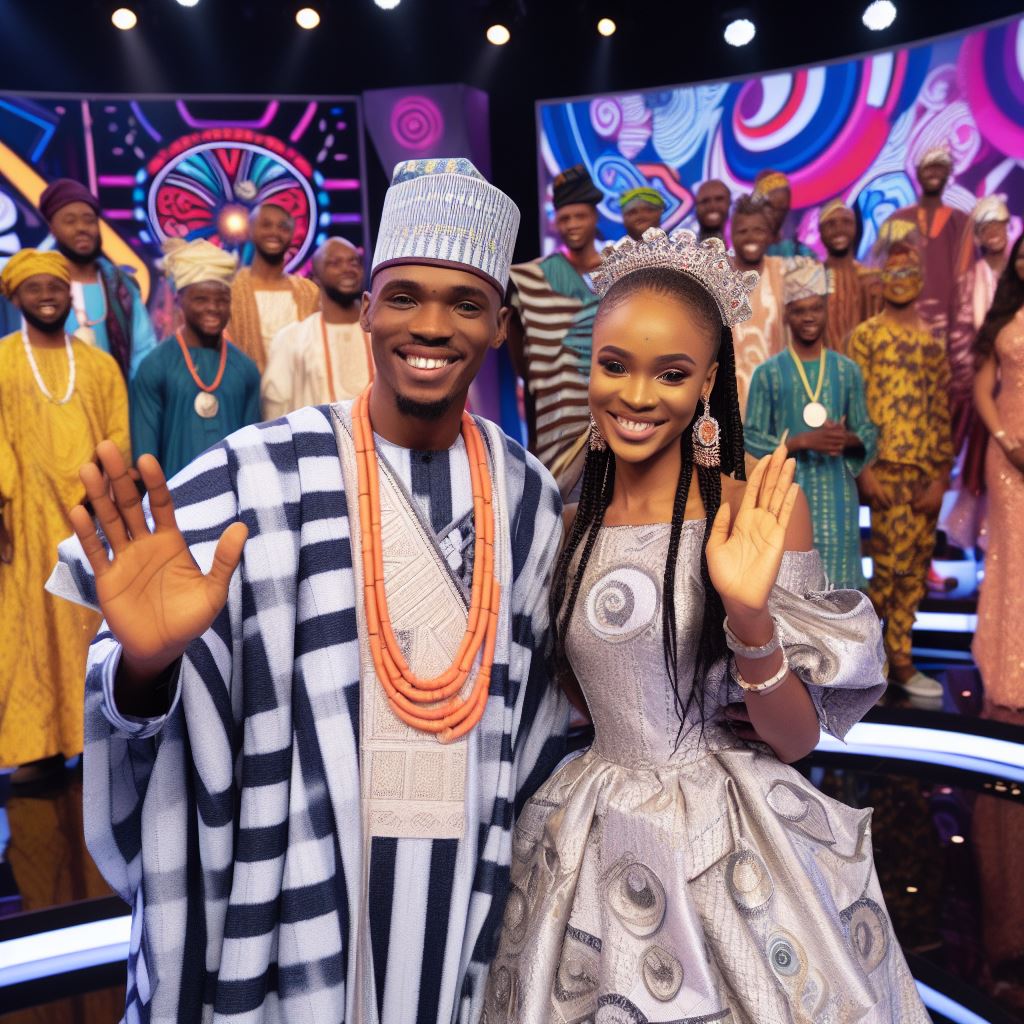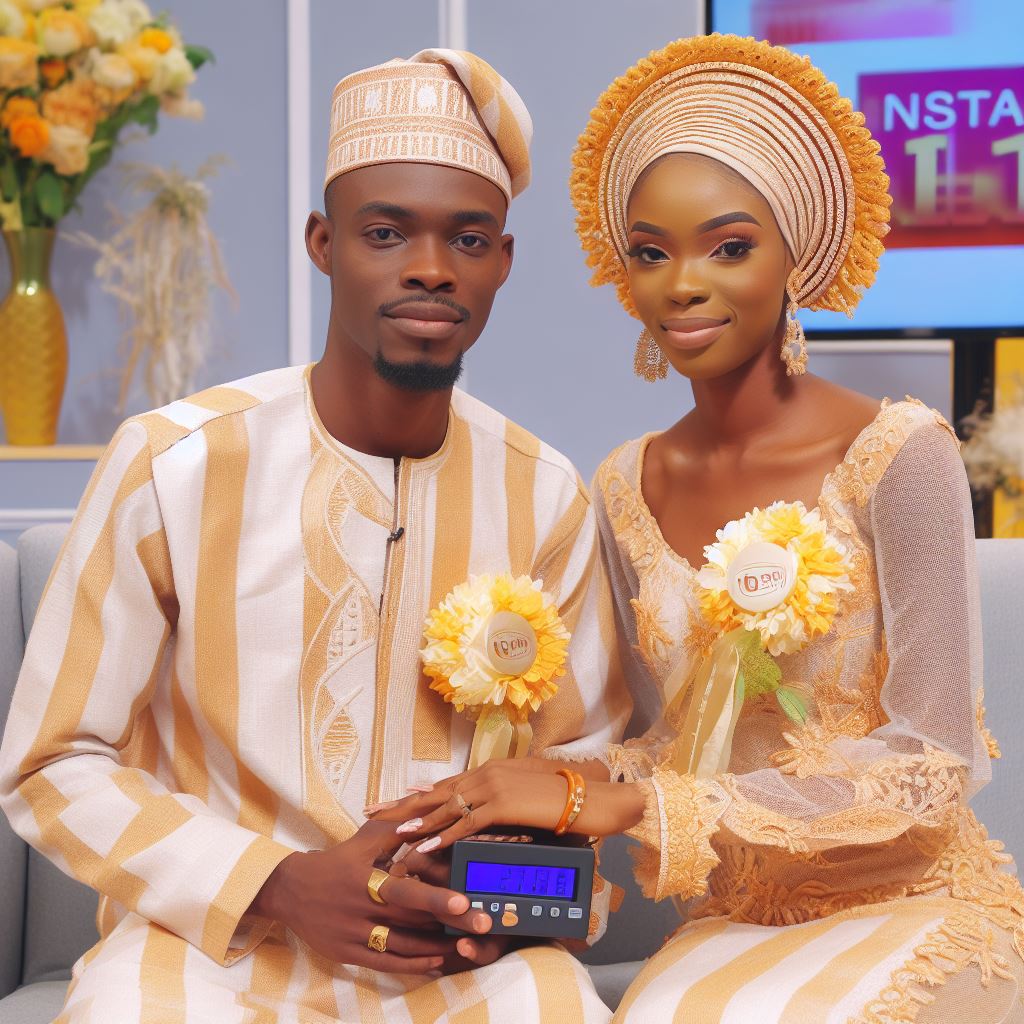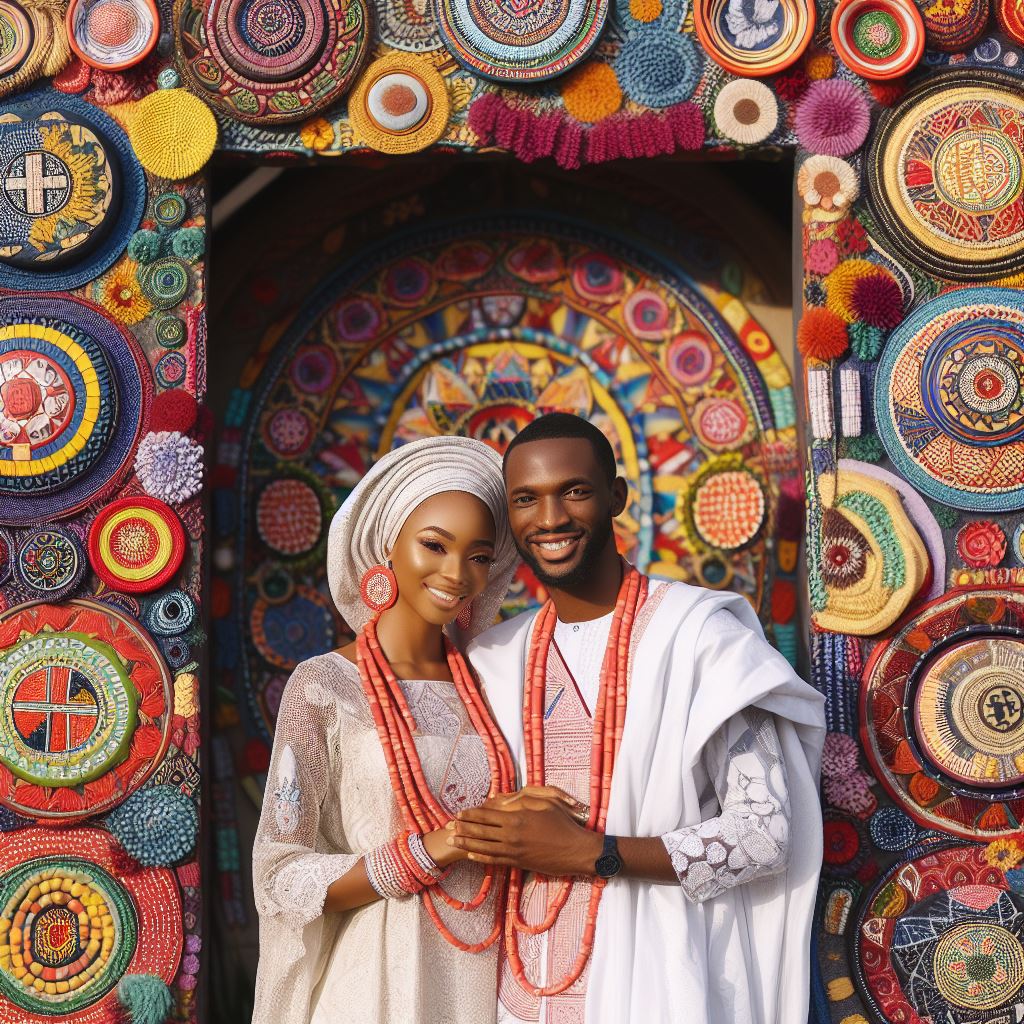Introduction
Married at First Sight (MAFS) is a unique reality TV show that pairs couples who meet for the first time on their wedding day.
This unconventional concept has gained significant popularity in recent years and has become a topic of conversation in society.
In this blog post, we will delve into how MAFS reflects and challenges Nigerian values and cultural norms.
The show centers around the idea that love and compatibility can be determined by experts, rather than individuals themselves.
Each couple takes a leap of faith, agreeing to marry a stranger and allowing a camera crew to document their journey.
This concept both intrigues and raises eyebrows, as it challenges traditional notions of courtship and the importance of building a foundation for a committed relationship.
The popularity of MAFS has had a significant impact on society, sparking discussions about the role of arranged marriages, the influence of external factors on relationships, and the sensationalization of love and marriage.
This show’s influence on Nigerian values cannot be ignored, as it prompts viewers to question their own beliefs and evaluate the impact of modern dating and relationship practices on cultural traditions.
Through the analysis of specific episodes and the stories of the couples featured, we aim to shed light on how MAFS reflects the evolving mindset of Nigerians towards love, marriage, and traditional values.
Additionally, we will explore the ways in which the show challenges these values, potentially leading to a shift in societal expectations and perceptions of relationships.
Stay tuned for a thought-provoking exploration of the impact of MAFS on Nigerian values and cultural norms.
Read: Cultural Impact of Reality TV: ‘Married at First Sight’ in Nigeria
Reflecting Nigerian Values
Nigerian culture holds traditional values in high regard, emphasizing their importance in society.
These values shape the way Nigerians view marriage and family, and television shows like “Married at First Sight” (MAFS) have both aligned with and challenged these beliefs.
How MAFS aligns with some Nigerian values
In Nigerian culture, marriage is considered a sacred institution, a lifelong commitment between two individuals.
It is seen as more than just a union between two people, but rather a merging of two families.
MAFS reflects this value by focusing on the significance of marriage as the ultimate goal for participants.
The show’s premise revolves around strangers getting married without any prior knowledge of each other.
While this may seem unconventional, it aligns with Nigerian values of valuing marriage and its ability to bring two individuals together for a lifetime.
The participants on MAFS are willing to take this risk, hoping that their marriages will be successful.
Examples from the show that demonstrate the reflection of Nigerian values
Furthermore, Nigerian culture places a strong emphasis on family and the extended network of relatives.
MAFS often showcases the involvement of family members throughout the process, allowing them to have a say in the decision-making.
This aligns with Nigerian values, as family opinions are highly valued and respected.
One episode of MAFS featured a Nigerian couple, Uche and Clinton, who embodied Nigerian values in their approach to marriage.
Uche spoke about her desire to marry a Nigerian man who understands and respects her culture, demonstrating the importance of shared values in Nigerian marriages.
This episode further emphasized the reflection of Nigerian values on the show.
Positive aspects of MAFS reflecting Nigerian values
MAFS also highlights positive aspects of reflecting Nigerian values.
By promoting the importance of marriage and family, the show encourages participants to take relationships seriously and commit to making them work.
This aligns with Nigerian values, as divorce is often seen as a last resort and marriage is viewed as a lifelong commitment.
Additionally, MAFS offers a platform for discussions on cultural differences and challenges faced by couples from different backgrounds.
This serves as an opportunity for viewers to learn about and appreciate the diversity of Nigerian culture and values, fostering understanding and acceptance.
How MAFS Challenges Some values
However, MAFS also challenges some Nigerian values.
The concept of marrying a stranger goes against traditional Nigerian matchmaking practices, where families play a significant role in finding suitable partners for their children.
This conflict between modern dating practices and traditional values can spark debates among Nigerian viewers.
Moreover, the show’s focus on instant marriages may be seen by some as trivializing the seriousness of the institution.
Nigerian culture places great importance on preparation and careful consideration before entering a marriage. The rushed nature of MAFS can be perceived as undermining this value.
Basically, “Married at First Sight” reflects and challenges Nigerian values in various ways.
The show aligns with the importance of marriage and family in Nigerian culture, showcasing couples who are willing to take a leap of faith.
It also promotes discussions on cultural differences and encourages understanding.
However, the concept of marrying strangers and the rushed nature of these marriages can be seen as a challenge to traditional Nigerian values.
Ultimately, it is important to analyze the impact of such shows on Nigerian society and the potential implications for its cultural fabric.
Read: Navigating the First Year: Advice for Quick Marriages in Nigeria
Challenging Nigerian Values
“Married at First Sight” (MAFS) has undeniably stirred discussions around traditional Nigerian values.
Aspects of MAFS that challenge traditional Nigerian values
This unconventional reality show challenges norms in various ways:
- Lack of Courtship: Nigerian tradition places a significant emphasis on courtship, a period where couples get to know each other’s families, values, and backgrounds. MAFS skips this entirely, matching strangers who meet at the altar.
- Emphasis on Compatibility: Compatibility is the linchpin of MAFS. In contrast, Nigerian culture traditionally prioritizes factors like family connections and societal expectations over compatibility.
- Arranged Marriages: Nigeria has a history of arranged marriages. However, MAFS takes this practice to an extreme by having complete strangers marry, with limited input from the couple.
Potential criticisms or concerns regarding the show challenging Nigerian values
While MAFS challenges these values, it also sparks concerns:
- Erosion of Cultural Norms: Critics argue that the show dilutes the sanctity of Nigerian traditions. They fear that such dramatic changes may erode the culture’s deeply ingrained values.
- Questionable Success Rate: The success rate of MAFS couples worldwide has been controversial. Nigerians worry about the emotional toll on participants and the precedent it sets for the younger generation.
Generally, “Married at First Sight” pushes the boundaries of traditional Nigerian values.
While it emphasizes compatibility, it lacks the time-honored courtship phase and challenges the concept of arranged marriages.
These changes have sparked both curiosity and concern, reflecting the complex relationship between modern entertainment and age-old traditions.
Read: Reasons Nigerians Are Hooked on ‘Married at First Sight’ Shows
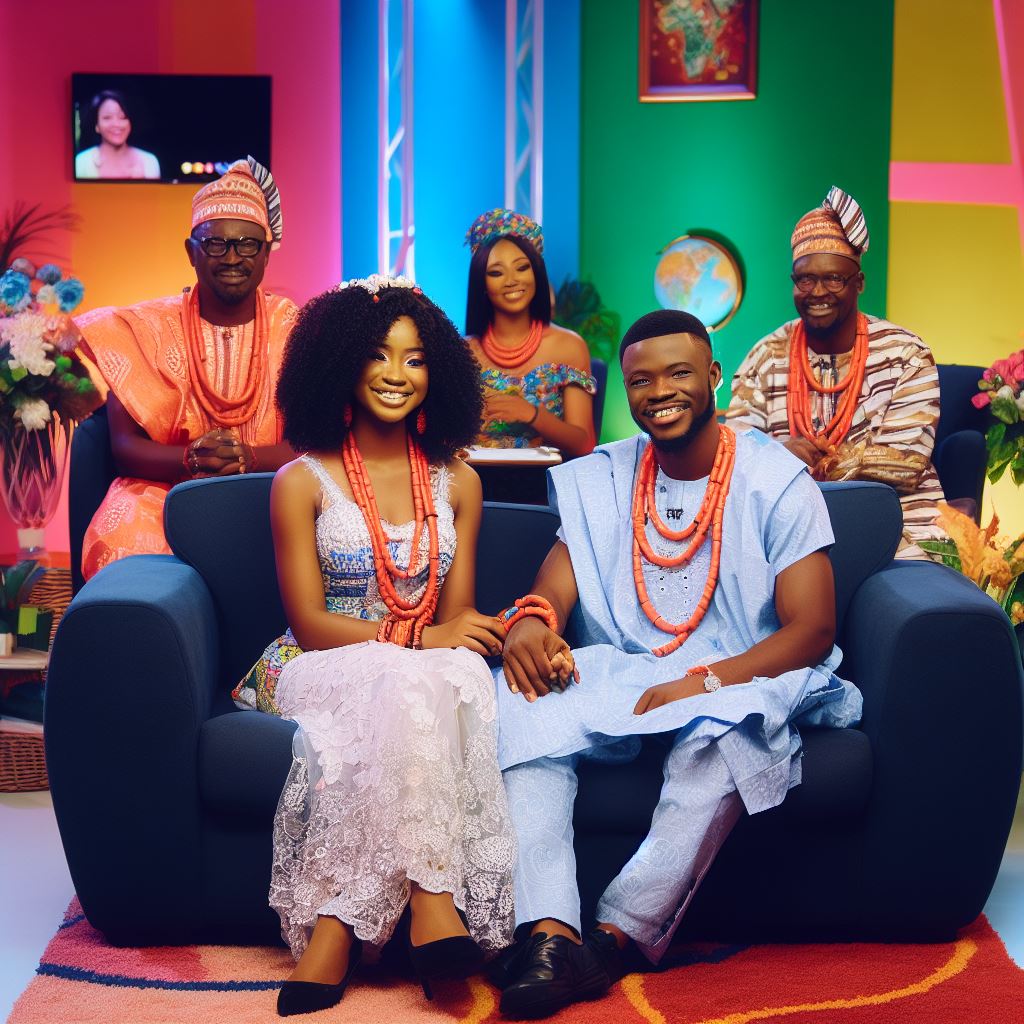
Effects on Nigerian Society
Analyzing the Impact of ‘Married at First Sight’
‘Married at First Sight’ has created ripples in Nigerian society, challenging age-old norms and sparking crucial debates.
- Diverse Marriages: The show portrays diverse couples, reflecting the multicultural fabric of Nigeria.
- Break from Arranged Marriages: It challenges the concept of arranged marriages, empowering individuals in their marital choices.
- Societal Discussions: It fuels discussions on love marriages versus arranged marriages, promoting open dialogues.
Influence on Perceptions about Marriage and Relationships
- Realistic Expectations: MAFS highlights the complexities of relationships, which can foster more realistic expectations.
- Communication: Viewers can learn from the couples’ communication styles, vital in any relationship.
- Longevity of Love: It emphasizes that love can grow over time, debunking instant gratification myths.
Conflicts Between Traditional Values and Modern Ideas
- Individual Choice: The show’s emphasis on individual choice conflicts with collective family decisions.
- Role of Family: Traditional values often prioritize family’s role in marriage, while MAFS prioritizes individuals.
- Gender Roles: MAFS showcases evolving gender roles, challenging deeply ingrained stereotypes.
Effects on Dating Culture, Expectations, and Views Towards Marriage
- Online Dating: The show influences more Nigerians to explore online dating as a viable option.
- Delayed Marriages: It might lead to later marriages as people seek compatibility over tradition.
- Marital Counseling: The concept of counseling, highlighted in MAFS, could gain acceptance in Nigeria.
In essence, ‘Married at First Sight’ is transforming Nigerian society by influencing perceptions of marriage, challenging traditional values, and redefining dating culture, ultimately fostering open conversations about love and relationships.
Read: Comparing Traditional Arranged Marriages & ‘Married at First Sight’
Conclusion
“Married at First Sight” offers a unique lens into Nigerian values.
It reflects the enduring significance of arranged marriages in a rapidly modernizing society.
Simultaneously, it challenges these traditions by showcasing individuals seeking love on their terms.
This dynamic interplay highlights the evolving landscape of Nigerian relationships.
It urges us to reconsider preconceived notions about tradition and personal choice.
Readers are encouraged to form their own opinions on this complex issue.
It’s important to remember that cultural values are not static; they evolve with time.
Open dialogue and understanding are crucial when discussing cultural values and societal changes.
By engaging in respectful conversations, we can bridge the gap between tradition and modernity.
In a nutshell, “Married at First Sight” serves as a captivating mirror, reflecting and challenging Nigerian values, offering a deeper understanding of a society in transition.

